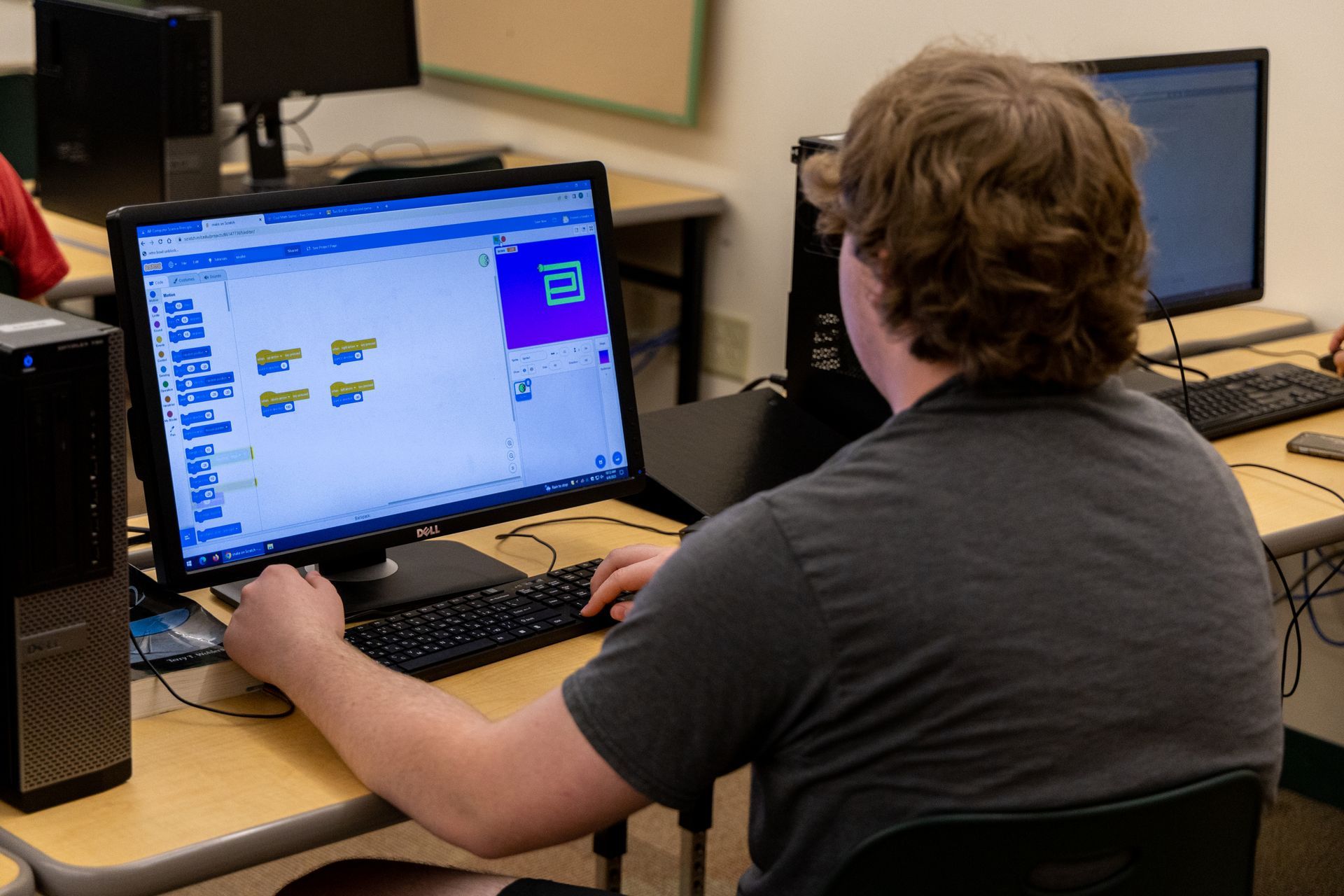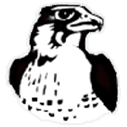Career and Technical Education Center (CTEC)
As a member of the seven-school-systems collaborative, Minnechaug Regional High School offers the following Chapter 74 (state) approved vocational, technical, and occupational programs to students beginning in their sophomore year. Bus transportation is provided to and from the Career and Technical Education Center (CTEC) located in West Springfield. All programs provide students, grades 10-12, with the necessary academic and technical competencies required by current industry standards to enter a career pathway and to give students pursuing post-secondary options a solid basis for continued education in a technical field. Most students require a minimum of two years of focused technical training to complete the program and achieve appropriate skills levels. The only exceptions are the Cosmetology program and the Early Education program, which are three-year programs. Students are eligible to attend CTEC starting in 10th grade.
Students taking vocational courses at CTEC will enroll in courses at Minnechaug determined by the individual needs of the student. This may include various online educational options, as well as school-based alternative learning schedule options. It is, therefore, important that students who are planning to attend CTEC communicate their intentions to their School Counselors. Students involved in CTEC courses are held to the same graduation standard as all students, in addition to the graduation credit earned in all CTEC programs. Some CTEC programs may be used to help students meet the P.E., Math, Science, Fine Art or Applied Art graduation requirements, with approved academic equivalences.
If a student passes four semesters of CTEC, academic equivalency credits will be applied toward diplo-ma requirements as noted at the end of each course description. The Minnechaug Regional High School attendance policy applies to CTEC students attending classes at the CTEC location.
CTEC Program for Grades 10, 11 and 12
Credits: 20 per year
Offered: Both semesters, five days a week. Juniors will attend the morning CTEC session. Sophomores and Seniors will attend the afternoon session.
Applications for any program must be submitted to CTEC by the first day of school in MAY for acceptance in the fall. Please see your School Counselor for the application form and admissions policy.
CTEC Exploratory Program (775)
All newly enrolled students in grades 10 and 11 begin their studies at LPV Career TEC by participating in the Three Week – Three Shop Exploratory Program. During this time students have the opportunity to explore three career/vocational technical programs (shops) for six weeks each in an effort to help them make a career choice that is best for them. Final placement is determined by an overall review of performance in all three shop explorations. Grades from each exploration are reviewed and priority for shop placement is given based upon specific shop performance as well as overall performance. Students must give their best effort in all three shops explored in order to have the best chance to be placed in the final shop of their choosing. Sophomore schedules will reflect course 775 for the first semester. Juniors may be scheduled directly into a specific vocational shop course.
Early Education and Care (Three-year program) Semester 1: (796) / Semester : (797)
The Early Education and Care program is a comprehensive competency based three-year program in which students will become familiar with a variety of child care programs. Some of these programs may include: licensed family child care homes, center-based child care programs, and public school programs. Students become certified in Infant and Child CPR, and Pediatric First Aid prior to externships in child care programs. They will learn the importance of providing quality care and education to young children of various ages. Students will be guided through the process of planning and developing curriculum for young children, creating activities and implementing lesson plans with the children in the Early Learning Center. Students will be prepared to apply for the Department of Early Education and Care Teacher License upon successfully completing this program.
(Academic Equivalencies: Fine Art, Applied Art, P.E.)
Automotive Technology Semester 1: (935) / Semester 2: (936)
The Automotive Technology program is certified by the National Automotive Technicians Education Foundation (NATEF) in the following areas: Brakes, Electrical/Electronic Systems, Engine Performance, Suspension, and Steering. The NATEF curriculum prepares students to meet national automotive industry standards and requires students to become proficient in a multitude of automotive procedures and diagnostic techniques. The NATEF curriculum prepares students to meet national automotive industry standards and requires students to become proficient in a multitude of automotive procedures and diagnostic techniques. Students completing the Automotive Technology program will be able to demonstrate an understanding of careers within the automotive field, shop safety, automotive systems, related math applications for automotive technicians, automotive measurements, diagnostic, and testing procedures, troubleshooting and problem solving.
(Academic Equivalencies: Math or Science, Applied Art, P.E.)
Information Support Services and Networking Semester 1: (722) / Semester 2: (723)
The Information Support Services and Networking program, is a competency-based program designed to provide students with entry level skills in personal computer maintenance and repair, data communications and networking. Students are taught the basic skills needed to install, troubleshoot, and repair computer system hardware and operating systems as it prepares students for the Comp-TIA A+ technician certification. Included in the program are some fabrication skills along with electro-mechanical troubleshooting and repair. Students will have practical knowledge of analog and digital electronics, as well as competencies with tools and test equipment. The Cisco Net-working Academy component includes network design, routing and switching, and network maintenance and operation. Topics include the OSI model, internetworking devices, IP addressing, LAN media and topologies, structured cabling, PC hardware and software, patch cables, installation of structured cabling, cable management techniques, and the use of test equipment.
(Academic Equivalencies: Science, Applied Art)
Health Assisting Semester 1: (724) / Semester 2: (725)
The Health Assisting program is a competency based program that focuses on safe and effective performance of the student providing care in a health-care setting. The program is certified by the Commonwealth of Massachusetts as a Certified Nursing Assistant (CNA) and Sending Health Aide (HHA) testing site and by the Department of Public Health as a Feeding Assistant testing site. The program introduces students to career opportunities in the field of allied health care as well as provides instruction in basic entry level skills. Emphasis is placed on specific nursing assistant duties and on the concept pertaining to the psychosocial aspect of care giving. Students receive a strong academic foundation as well as experiencing externships where they can practice their skills in a real world setting under the supervision of experienced medical professionals. Students become First Aid, CPR and AED certified prior to clinical rotations through nursing and rehabilitative centers and a local hospital.
(Academic Equivalencies: Science, Applied Art, P.E.)
Carpentry Semester 1: (726) / Semester 2: (727)
The Carpentry program is a course of study offering a comprehensive competency based curriculum aligned with the Massachusetts Department of Education Vocational Technical Education Frameworks – Construction Cluster – Carpentry. First year students focus in the classroom and shop on developing basic carpentry-related skills. Stu-dents begin by mastering basic carpentry competencies, such as ruler reading, workplace safety, and operation of both hand and power tools. Building site preparation follows, including transit set up, calculating grade elevations, properly situating the building and the construction of batter boards. Upon successful completion of the first-year curriculum students have the opportunity to study one of the following: Off-campus projects: These projects range from partial or whole buildings to small renovations such as porches. Architectural Woodworking: This course of study incorporates the standards of the Architectural Woodworkers Institute (A.W.I.) as it relates to the commercial side of interior finish work.
(Academic Equivalencies: Math or Science, Applied Art, P.E.)
Culinary Arts Semester 1: (728) / Semester 2: (729)
The Culinary Arts program is a competency based program certified by the American Culinary Federation (ACF). Students operate a fully equipped commercial kitchen and dining room encompassing restaurant, banquet, and buffet services through the two student run restaurants: the morning Java Café, serving breakfast, and the Brush Hill Bistro, serving lunch, which are open to the general public two days a week. While meeting these standards and accepting responsibility for time management, food quality, and customer service, students develop skills in baking, culinary techniques, menu planning, and food costs and hospitality management. Training in proper use and maintenance of equipment, culinary tools, sanitation, and proper storage and handling of food are all part of the curriculum. Students are prepared for the ServSafe® Certification through the National Restaurant Association’s Educational Foundation training program.
(Academic Equivalencies: Math or Science, Applied Art, P.E.)
Graphic and Visual Design Semestger 1: (777) / Semester 2: (778)
The Graphic and Visual Design program is a competency-based program certified by Print Ed, a component of the Graphic Arts Education and Research Foundation (GAERF®). Students will use state of the art digital imaging, illustration, and page layout software and equipment, and learn to apply their creativity to real-life or simulated projects. Students will be introduced to the Graphic and Visual Design field and gain competencies in traditional and computer-based layout, design, typesetting; copy preparation, composition and printing press operations. Stu-dents will use software programs such as Adobe InDesign, Photoshop, and Illustrator and learn electronic plate making, 2-color press operations, finishing and binding, and paper cutting. Students will work on projects such as ads, logos, multi-page documents, four color publications, posters, packaging, and photographing products to mar-ket and strengthen their skills in visual design by concept development, creating corporate identities, branding and packaging, as well as designing self-promos. In addition, students will be exposed to digital photography, silk screening and sign-making technology.
(Academic Equivalencies: Applied Art, Fine Art)
Landscaping / Horticulture Semester 1: (773) / Semester 2: (774)
The Landscaping Technology/Horticulture program offers a comprehensive competency-based course that explores career areas in landscape maintenance, construction and design, greenhouse production, nursery production, floriculture, and retail garden center operation. The program emphasizes knowledge of plant science as a foundation to all career areas. Students learn while using equipment and materials that represent industry standards. Project based learning activities, residential landscaping projects, greenhouse sales, and floral projects provide experiences for students to reinforce, and practice skills and knowledge learned in the classroom setting. Leadership and personal development skills are promoted through involvement in the Future Farmers of American (FFA) Student Organization.
(Academic Equivalencies: Math or Science, P.E.)
Machine Technology Semester 1: (798) / Semester 1: (799)
The Machine Technology is a comprehensive competency based three-year program designed to provide students the opportunity to learn all the skills demanded of the 21st century machinist. Students follow a course sequence that starts with the basics of manual machining and progresses to advanced multi-axis CNC programming, setup, and operation. Machine Technology students receive training through hands-on experience that replicates operations used in industry. Metal parts are produced using lathes, millers, surface grinders, and Computerized Numerical Control (C.N.C.) machines. Students are introduced to the principle of machining using a ProtoTrak Knee Mill, as well as lathes, surface grinders and various hand tools. Students will create programs using Cartesian co-ordinate systems of measurement and are introduced to basic CAD programs using Solid Works, as well as speed and feed, and basic math formulas.
(Academic Equivalencies: Math or Science, Applied Art, P.E.)
Building / Property Maintenance Semester 1: (700) / Semester 2: (800)
Building/Property Maintenance program, is a competency-based program designed to introduce students to the many facets of property maintenance: interior, exterior, and seasonal grounds and lawn care. Students are introduced to a cross section of hands-on training in the basic skills related to building/facilities maintenance including: carpentry, electrical, floor care, landscaping, painting, and plumbing, with an emphasis on safe work practices and employability skills and safety. Safety within the curriculum includes the use of appropriate hand and power tools in conjunction with industry standards. Students learn preventative maintenance and repair techniques of small engines and power tools.
(Academic Equivalencies: Math or Science, Applied Art, P.E.)
Cosmetology (Three-year program) Semester 1: (791) / Semester 2: (792)
Cosmetology is a comprehensive competency based three-year program designed to develop skills used by cosmetologists. The Cosmetology program is certified by the Commonwealth of Massachusetts Board of Registration of Cosmetologists. Students in the Cosmetology program are introduced to career opportunities in the field of cosmetology which includes hair stylist, manicurist, skin care specialist, cosmetic chemist, and make-up artist. Under the supervision of licensed instructors in a state-of-the-art equipped classroom/shop, students will learn techniques and skills necessary for success in the beauty industry along with the sciences of the profession including anatomy, physiology, and chemistry. Upon successful competition of the course, which includes the requirement of 1000 instructional hours, students are prepared to take the Board of Registration of Cosmetologists license exam using the curriculum standards set by the Board.
(Academic Equivalencies: Math or Science, Applied Art, P.E.)
Cooperative Education (CO-OP) Program
The Cooperative Education (CO-OP) Program at LPV Career TEC is designed to give second year students the opportunity to extend their learning experience into the world of work, whereby the student is placed into a paid position during shop hours. Student's co-op gains and achievements are assessed using the Work-Based Learning Plan endorsed by the Massachusetts Department of Education in collaboration with the Massachusetts School to Career System. All second-year students at LPV Career TEC, upon the recommendation of their instructor, and who are in good standing in their career/vocational technical program are invited to participate in the CO-OP Seminars. The CO-OP Seminar is aligned with the Vocational Technical Education Frameworks Strand 4: Employability Knowledge and Skills giving students the opportunity to develop employability skills to secure and keep employment in a chosen field. Student schedules will reflect the original vocational shop course.
For more information, visit the CTEC website: http://lpvctec.org

Counseling:
SITE LINKS

